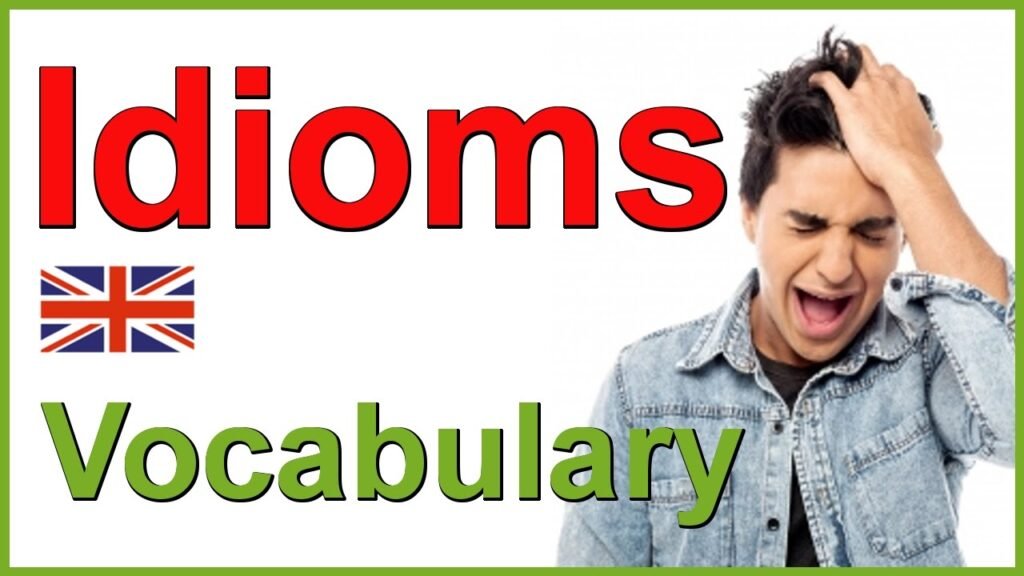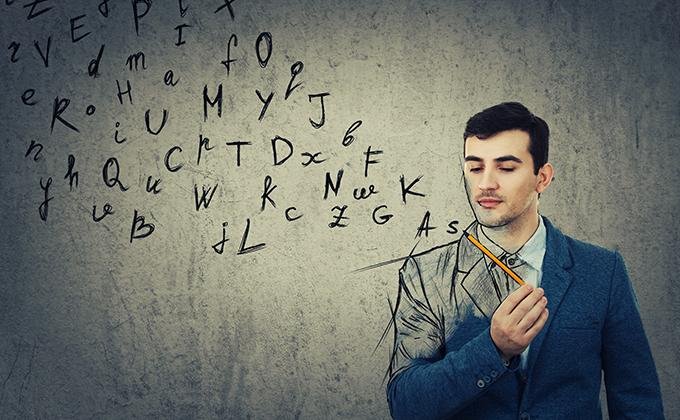SSC CHSL SYLLABUS

SSC CHSL Syllabus 2023: In order to score well in SSC CHSL 2023 exam which is to going to be held in March 2023 as announced by SSC, all candidates should be aware of the SSC CHSL syllabus and exam pattern. It is crucial to know the structure of the exam and the syllabus and subject wise topics that need to be prepared in and out. Here, we start with understanding the exam pattern and Syllabus of the SSC CHSL 2023 exam:
SSC CHSL Syllabus 2023
Staff Selection Commission has released an updated SSC CHSL Exam Pattern and Syllabus along with SSC CHSL 2022-23 Notification. The candidates must have an overview of the latest SSC CHSL Syllabus 2023 released by SSC.
Staff Selection Commission has released an updated SSC CHSL Exam Pattern and Syllabus along with SSC CHSL 2022-23 Notification. The candidates must have an overview of the latest SSC CHSL Syllabus 2023 released by SSC.
| SSC CHSL Syllabus 2023 | |
| Commission | Staff Selection Commission (SSC) |
| Exam Name | SSC CHSL |
| SSC CHSL Exam Date 2023 | March 2023 |
| Category | Syllabus |
| Mode of Exam | Online |
| Negative Marking | Tier 1- 0.5 marks Tier 2- 1 mark |
| Selection Process | Tier 1 and Tier 2 |
| Official website | www.ssc.nic.in |
SSC CHSL Selection Process (Revised)
SSC CHSL exam has two different phases that candidates need to clear to get selected for various posts in the Government Offices. SSC CHSL Tier I is an Objective Multiple Choice Question paper and Tier-II will include following three sections having two modules each.
| Tier | Type | Mode |
| Tier – I | Objective Multiple Choice | Computer Based (online) |
| Tier – II | Objective Multiple Choice + Skill Test & Typing Test Tier-II will include three sections having two modules each |
Computer Based (online) |
SSC CHSL Minimum Qualifying Marks
Minimum qualifying marks in Tier-I, Section-I, Section-II & Module-I of SectionIII of Tier-II Examination are as follows:
- UR : 30%
- OBC/ EWS : 25%
- All other categories : 20%
SSC CHSL Eligibility 2023
Getting complete information about SSC CHSL eligibility criteria is the most significant factor. Note the SSC CHSL age limit, age relaxation, and educational qualification details in the article below. Also, get other details such as the number of attempts allowed for the SSC CHSL Exam 2023.
SSC CHSL Eligibility : Nationality Criteria
The SSC CHSL Eligibility Criteria for Nationality for the various posts of recruitment are defined in the official notification. Candidates must be a citizen of India. There is further clarification given in the notification regarding sub-categories falling under nationality.
- A citizen of India, or
- A subject of Nepal, or
- A subject of Bhutan, or
- A Person who is a Tibetan refugee.
- Migrants from Pakistan, the United Republic of Tanzania (formerly Tanganyika and Zanzibar), Burma, Sri Lanka, Malawi, East African countries of Kenya, Uganda, Zambia, Zaire, Vietnam and Ethiopia with the intention of permanently settling in India.
SSC CHSL Eligibility : Age Limit
The age limit for the SSC CHSL exam is 18 to 27 years. Candidates must be between 18 and 27 years of age on the date of the exam in order to be eligible to take the test. There are age relaxation provisions for certain categories of candidates, such as those belonging to Scheduled Castes/Scheduled Tribes/Other Backward Classes/Persons with Disabilities/Ex-servicemen. These candidates may be eligible for age relaxation of up to 3 years, 5 years, or 10 years, depending on the category to which they belong.
SSC CHSL Age Relaxation For Various Posts
The SSC CHSL Age limit for the general category states that candidates should have not been born earlier than 02/01/1995 and later than 01/01/2004. However, there are few CHSL age relaxations for various categories which are given below.
| Categories | Age Relaxation permissible beyond the upper CHSL age |
| SC/ ST | 5 years |
| OBC | 3 years |
| Persons with Disabilities (PWD) | 10 years |
| PWD + OBC | 13 years |
| PWD + SC/ ST | 15 years |
| Ex-Servicemen | 3 years after deduction of service period |
| Defence Personnel disabled in operation during hostilities with any foreign country or in a disturbed area and released as a consequence thereof. | 3 years |
| Defence Personnel disabled in operation during hostilities with any foreign country or in a disturbed area and released as a consequence thereof (SC/ ST). | 8 years |
| Central Government Civilian Employees: Who have rendered not less than 3 years regular and continuous service as on closing date for receipt of online applications. | Upto 40 years of age |
| Central Government Civilian Employees: Who have rendered not less than 3 years regular and continuous service as on closing date for receipt of online applications (SC/ ST). | Upto 45 years of age |
| Widows/ Divorced Women/ Women judicially separated and who are not remarried. | Upto 35 years of age |
| Widows/ Divorced Women/ Women judicially separated and who are not remarried (SC/ ST). | Upto 40 years of age |
SSC CHSL Eligibility 2023 : Physical Disability
Check out the list of posts that actively recruits physically handicaped individuals.
| S No | Name of Post | Functional Requirement | Suitable Category of Benchmark Disability |
| 1 | Data Entry Operator | S, ST, W, MF, RW, SE, H | a) LV b) D, HH c) OA, BA, OL, BL, OAL,CP, LC, Dw, AAV, MDy d) ASD (M), ID, SLD, MI e) Multiple Disabilities Involving (a) to (d) above |
| 2 | Lower Division Clerk (LDC) / Junior Secretarial Assistant (JSA) | S, ST, W, BN, RW,SE, H, C, MF | a) B, LV b) D, HH c) OA, BA, OL, BL, OAL, CP, LC, Dw, AAV, MDy d) ASD (M, MoD), ID, SLD, MI e) Multiple Disabilities involving (a) to (d) above |
| 3 | Postal Assistant/ Sorting Assistant | S, ST, W, MF, SE, H, C | a) LV b) D, HH c) OL, LC, Dw, AAV d) ASD (M), ID, SLD, MI e) Multiple Disabilities involving (a) to (d) above |
SSC CHSL Eligibility : Educational Qualification
You have to fulfill the qualification requirements laid down by the SSC in its notification. Here is the detailed educational qualification for the post of SSC CHSL Recruitment in 2023. If you are planning to apply for Staff Selection Commission Recruitment 2023, then at first you have to check you are eligible or not, So check the SSC CHSL Qualification for different posts.
| SSC CHSL Posts | Educational Qualification |
| LDC/ JSA, PA/ SA, DEO (except DEOs in CAG) | Candidates must have passed 12th Standard or equivalent examination |
| Data Entry Operator (DEO Grade ‘A’) in the Office of Comptroller and Auditor General of India (C&AG) | Candidates must have passed 12th Standard in Science stream with Mathematics as a subject or equivalent examination |
SSC CHSL Eligibility : Number Of Attempts
SSC CHSL Eligibility : Physical Standards
It is important for the candidates to understand the physical standard specifications which are mentioned by the officials for the aspiring candidates. The SSC CHSL height and weight criteria are listed below for your reference:
| SSC CHSL Physical Standards | |||||
| Sr.no | Region | States/Region included | Physical Standards | ||
| Minimum Height | Chest | Minimum Weight | |||
| (a) | Western Himalayan | J&K, Himachal Pradesh, Punjab Hills (Area South and west of the Inter State Border between Himachal Pradesh and Punjab and North and East of Road of Mukerian Hoshiarpur, Garh Shankar, Ropar and Chandigarh), Uttarakhand | 158 Cms | Minimum 75 Cm (Unexpanded) and expansion by 5 Cm | 47.5 Kgs |
| (b) | Eastern Himalayan Region | Sikkim, Nagaland, Arunachal Pradesh, Manipur, Tripura, Mizoram, Meghalaya, Assam & Hill region of West Bengal (Darjeeling and Kalimpong districts and Andaman Nicobar) | 152 Cms | Minimum 75 Cm (Unexpanded) and expansion by 5 Cm | 47.5 Kgs |
| (c) | West Plain Region | Punjab, Haryana, Chandigarh, Delhi, Rajasthan, Western UP | 162.5 Cms | Minimum 76 Cm (Unexpanded) and expansion by 5 Cm | 50 Kgs |
| (d) | Eastern Plain | Eastern UP, Bihar, West Bengal & Orissa and Jharkhand | 157 Cms | Minimum 75 Cm (Unexpanded) and expansion by 5 Cm | 50 Kgs |
| (e) | Central Region | Gujrat, Maharastra and Madhya Pradesh, Dadar Nagar & Haveli, Daman & Diu and Chaattisgarh | 157 Cms | Minimum 75 Cm (Unexpanded) and expansion by 5 Cm | 50 Kgs |
| (f) | Southern Region | Andhra Pradesh, Karnataka, Tamil Nadu, Kerala, Goa and Pondicherry, Telangana | 157 Cms | Minimum 75 Cm (Unexpanded) and expansion by 5 Cm | 50 kgs |
| (g) | Relaxation | to sons of serving/ Ex-GREF personnel) | 2 Cms | 1 Cm | 2 Kgs |
| (h) | Relaxation son adopted | in DD cases (this will be applicable to own son and not any other relative | 2 Cms | 1 Cm | 2 Kgs |
| (j) | Gorkhas | (Indian Domicile) | 152 Cms | Minimum 75 Cm (Unexpanded) and expansion by 5 Cm | 47.5 Kgs |
Other SSC CHSL Eligibility Criteria
Candidates who are in government service or in service of local or other authorities should have completed 3 years of continuous service to become eligible for the examination.
SSC CHSL Tier-I Exam Pattern
- The SSC CHSL Tier I exam is a computer-based online test (CBT) exam conducted online.
- Candidates are given a total of 60 minutes to solve the SSC CHSL Tier-I paper comprising 100 questions that count to a total of 200 marks (2 marks each question).
- For each wrong attempt, candidates are penalised with 1/2 marks in the Tier-1 exam.
| Section | Subject | No of Questions | Max Marks | Exam Duration |
| 1 | General Intelligence | 25 | 50 | 60 minutes (80 Minutes for PWD candidates) |
| 2 | General Awareness | 25 | 50 | |
| 3 | Quantitative Aptitude (Basic Arithmetic Skill) | 25 | 50 | |
| 4 | English Language (Basic Knowledge) | 25 | 50 | |
| Total | 100 | 200 | ||
SSC CHSL Syllabus for Tier-I Exam
SSC CHSL is conducted in three different levels, the syllabus of all three levels is different. All candidates must be well-informed about the latest changes (if introduced any) in the SSC CHSL Syllabus and exam pattern to prepare for SSC CHSL 2023.
There are 4 sections in Tier I of the SSC CHSL exam which are given below:
1. Reasoning Ability
2. Quantitative Aptitude
3. English Language
4. General Awareness
SSC CHSL Tier-I Syllabus
SSC CHSL Tier-I Syllabus comprises 4 subjects which are: English Language, Quantitative Aptitude, General Intelligence: & General Awareness. The subject wise topics for SSC CHSL 2023 Tier-I exam is given below:
| General Intelligence | Quantitative Aptitude | English Language | General Awareness |
|---|---|---|---|
| Logical Reasoning | Simplification | Reading Comprehension | History |
| Alphanumeric Series | Profit & Loss | Cloze Test | Culture |
| Ranking/Direction/Alphabet Test | Mixtures & Allegations | Para jumbles | Geography |
| Data Sufficiency | Simple Interest & Compound Interest & Surds & Indices | Miscellaneous | Economic Scene |
| Coded Inequalities | Work & Time | Fill in the blanks | General Policy |
| Seating Arrangement | Time & Distance | Multiple Meaning/Error Spotting | Scientific Research |
| Puzzle | Mensuration – Cylinder, Cone, Sphere | Paragraph Completion | Awards and Honors |
| Tabulation | Data Interpretation | One Word Substitution | Books and Authors |
| Syllogism | Ratio & Proportion, Percentage | Active/Passive Voice | |
| Blood Relations | Number Systems | ||
| Input-OutputCoding-Decoding | Sequence & Series | ||
| Coding Decoding | Permutation, Combination & Probability |
The detailed SSC CHSL Syllabus for Computer Based Examination (Tier-I) is discussed below:
General Awareness Syllabus for SSC CHSL
Questions from the General Awareness section are designed to test the candidate’s general knowledge of the environment around him and its 14 applications to society. Questions are also designed to test knowledge of current events and of such matters of everyday observation and experience in their scientific aspect as may be expected of an educated person. The test will also include questions relating to India and its neighbouring countries especially pertaining to History, Culture, Geography, Economic Scene, General policy, Static Awareness, Indian GK and scientific research.
General Intelligence Syllabus for SSC CHSL
This section includes questions of both verbal and non-verbal reasoning. The questions will be asked from
- Semantic Analogy
- Symbolic operations
- Symbolic/ Number Analogy
- Trends
- Figural Analogy
- Space Orientation
- Semantic Classification
- Venn Diagrams
- Number Series
- Embedded figures
- Figural Series
- Critical Thinking
- Problem Solving
- Symbolic/ Number Classification
- Drawing inferences
- Figural Classification
- Punched hole/ pattern folding & unfolding
- Semantic Series
- Figural Pattern-folding and completion
- Emotional Intelligence
- Word Building, Social Intelligence
- Coding and de-coding
- Other sub-topics if any Numerical operations.
English Language Syllabus for SSC CHSL
The English Language questions will be asked from the following topics:
- Spot the Error
- Fill in the Blanks
- Synonyms/ Homonyms
- Antonyms
- Spellings/ Detecting misspelt words
- Idioms & Phrases
- One-word substitution
- Improvement of Sentences
- Active/ Passive Voice of Verbs
- Conversion into Direct/Indirect narration
- Shuffling of Sentence parts
- Shuffling of Sentences in a passage
- Cloze Passage
- Comprehension Passage
Quantitative Aptitude Syllabus for SSC CHSL
- Number Systems: Computation of Whole Number, Decimal and Fractions, Relationship between numbers.
- Fundamental arithmetical operations: Percentages, Ratio and Proportion, Square roots, Averages, Interest (Simple and Compound), Profit and Loss, Discount, Partnership Business, Mixture and Allegation, Time and distance, Time and work.
- Mensuration: Triangle, Quadrilaterals, Regular Polygons, Circle, Right Prism, Right Circular Cone, Right Circular Cylinder, Sphere, Hemispheres, Rectangular Parallelepiped, Regular Right Pyramid with triangular or square Base.
- Algebra: Basic algebraic identities of School Algebra and Elementary surds (simple problems) and Graphs of Linear Equations.
- Geometry: Familiarity with elementary geometric figures and facts: Triangle and its various kinds of centres, Congruence and similarity of triangles, Circle and its chords, tangents, angles subtended by chords of a circle, common tangents to two or more circles.
- Trigonometry: Trigonometry, Trigonometric ratios, Complementary angles, Height and distances (simple problems only) Standard Identities like sin2 𝜃 + Cos2 𝜃=1 etc.
- Statistical Charts: Use of Tables and Graphs: Histogram, Frequency polygon, Bar-diagram, Pie-chart.
SSC CHSL Syllabus: Tier II (Revised)
SSC has revised SSC CHSL Tier 2 Exam Pattern and released new syllabus which has been detailed below-
Tier-II will include following three sections having two modules each:
Section-1: Module-I: Mathematical Abilities and Module-II: Reasoning and General Intelligence.
Section-2: Module-I: English Language and Comprehension and Module-II: General Awareness
Section-3: Module-I: Computer Knowledge Test and Module-II: Skill Test/ Typing Test
Tier-2 will be conducted in two sessions – Session- 1 & Session-2, on same day. Session-I will include conducting of Section-1, Section-2 and Module-1 of Section-3. Session-2 will include conducting of Module-2 of Section-3.
Tier-2 will consist of Objective Type, Multiple choice questions, except for Module-2 of Section 3. The questions will be set in English and Hindi except for Module-2 (i.e. English Language and Comprehension module) in Section 2.
There will be negative marking of 1 mark for each wrong answer in Section-1, Section-2 and Module-I of Section-3.
| SSC CHSL Tier 2 Exam Pattern 2023 | ||||||
| Session | Section | Modules | Subject | No. of Questions | Marks | Time |
| Session-I (2 hours and 15 minutes) | Section 1 | Module-1 | Mathematical Abilities | 30 | 90 | 1 hour |
| Module-2 | Reasoning and General Intelligence | 30 | 90 | |||
| Section 2 | Module-1 | English Language and Comprehension | 40 | 90 | 1 hour | |
| Module-2 | General Awareness | 20 | 90 | |||
| Section 3 | Module-1 | Computer Knowledge Module | 15 | 45 | 15 minutes | |
| Session-II (25 minutes) | Section 3 | Module-2 | Skill Test/ Typing Test Module- Part A- Skill Test for DEOsPart B: Typing Test for LDC/ JSA | — | — | 15 minutes 10 minutes |
SSC CHSL Tier-II Syllabus
Module-I of Session-I (Mathematical Abilities)
| Module-I of Session-I (Mathematical Abilities) | |
| Chapter | Topics |
| Number Systems |
|
| Fundamental arithmetical operations |
|
| Algebra |
|
| Geometry | Familiarity with elementary geometric figures and facts:
|
| Mensuration |
|
| Trigonometry |
|
| Statistics and probability | Use of Tables and Graphs
|
Module-II of Section-I (Reasoning and General Intelligence)
| Module-II of Section-I (Reasoning and General Intelligence): |
Verbal and non-verbal type
|
Module-I of Section-II (English Language And Comprehension)
| Module-I of Section-II (English Language And Comprehension) |
|
Module-II of Section-II (General Awareness)
| Module-II of Section-II (General Awareness) |
| Questions are also designed to test knowledge of current events and of such matters of everyday observation and experience in their scientific aspect as may be expected of an educated person.Questions relating to India and its neighbouring countries especially pertaining to
|
Module-I of Section-III of Paper-I (Computer Proficiency)
| Module-I of Section-III of Paper-I (Computer Proficiency) | |
| Chapters | Topics |
| Computer Basics |
|
| Software | Windows Operating system including basics of Microsoft Office like MS word, MS Excel and Power Point etc |
| Working with Internet and e-mails |
|
| Basics of networking and cyber security |
|
Skill test for the post of Data Entry Operator:
In this test, a candidate should have a data entry speed of 8,000 (eight thousand) Key Depressions per hour.The duration of the Test is 15 minutes and an English document having about 2000-2200 strokes/key-depressions is given to type.
Skill test for the post of DEO in the Office of the Comptroller and Auditor General of India (C&AG):
The ‘speed of 15000 key depressions per hour will be adjudged on the basis of the correct entry of words/key depressions as per the given passage.
The duration of the test will be for 15 minutes and printed matter in English containing about 3700-4000 key-depressions would be given to each candidate who would enter the same in the test computer.
Skill test for the post of Lower Division Clerk/ Junior Secretariat Assistant (LDS/JSA) and Postal Assistants/ Sorting Assistants (PA/SA):
The speed of 10500 key depressions per hour will be adjudged on the basis of the correct entry of words/key depressions as per the given passage.
The duration of the test will be for 15 minutes and printed matter in English containing about 9000 key-depressions/hour would be given to each candidate who would enter the same in the test computer.




